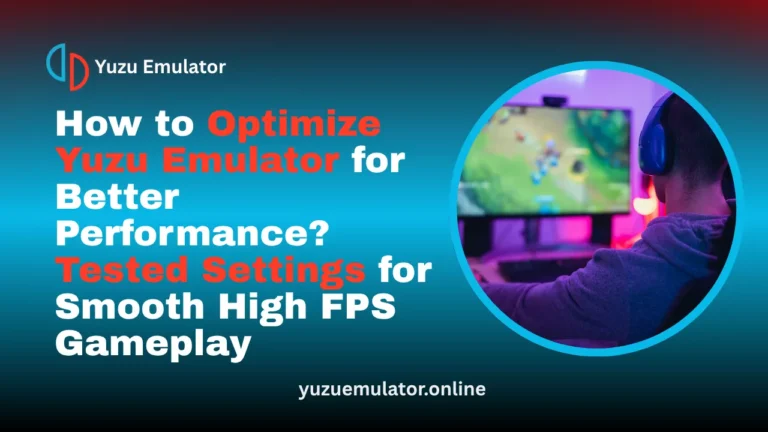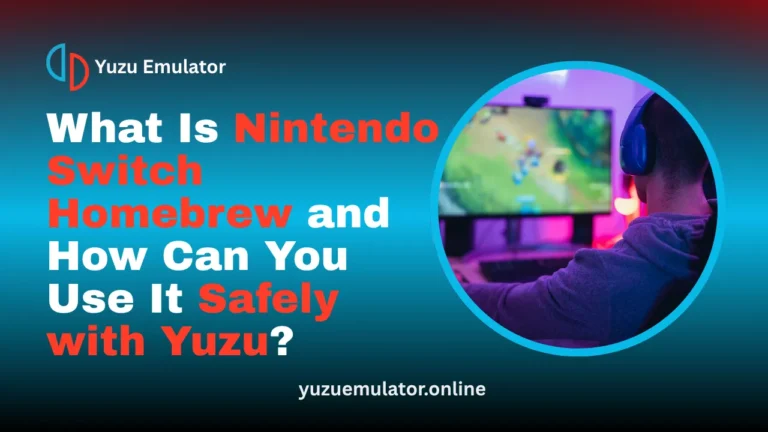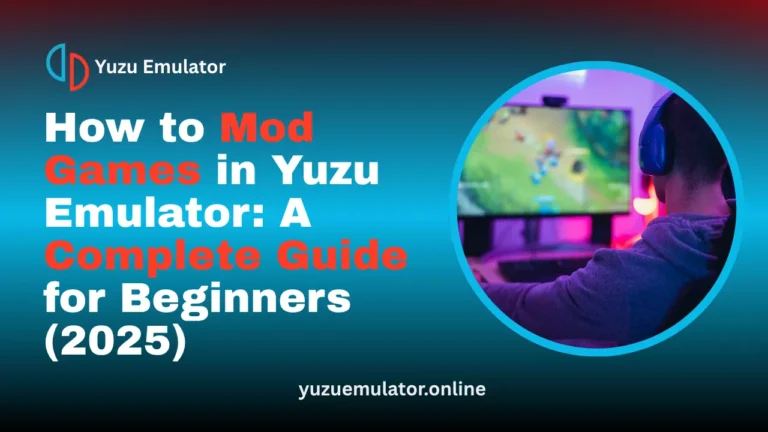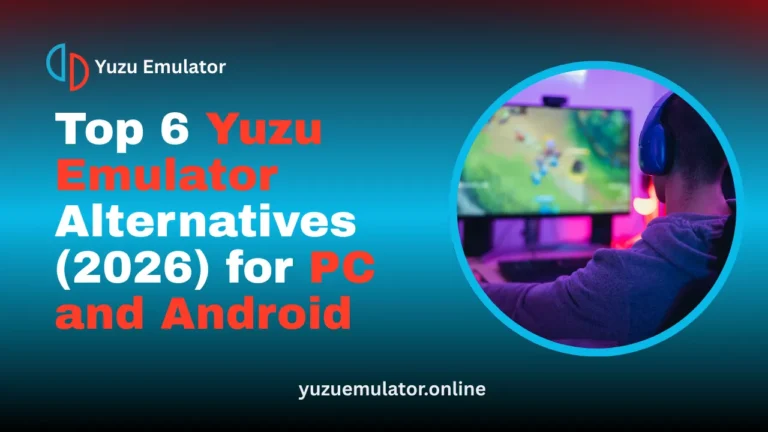Quick Answer:
Yuzu does not officially support macOS, but it can run on some Intel and Apple Silicon Macs using workarounds like Rosetta, Homebrew, and Vulkan-based solutions. Performance is unstable and generally lower than on Windows or Linux.
Yes, you can run Yuzu Emulator on macOS with Intel, M1, and M2 chips but it is not officially supported and comes with performance and compatibility limitations. While Intel-based Macs have limited support through workarounds, Apple Silicon (M1/M2) users must rely on experimental methods like Vulkan translation layers, which may cause crashes or low FPS. In this guide, you’ll learn what works, what doesn’t, and whether running Yuzu on macOS is actually worth it in 2026.
What is Yuzu Emulator?
Yuzu is an open-source Nintendo Switch emulator developed by the creators of the Citra 3DS emulator. It allows users to play Nintendo Switch games on a computer with better graphics and smoother performance than the console in some cases. The emulator is constantly updated and optimized for compatibility with various games and hardware configurations.
Currently, Yuzu officially supports Windows and Linux platforms. macOS builds have been experimental and aimed primarily at developers who want to study or modify the code rather than for everyday gaming use.
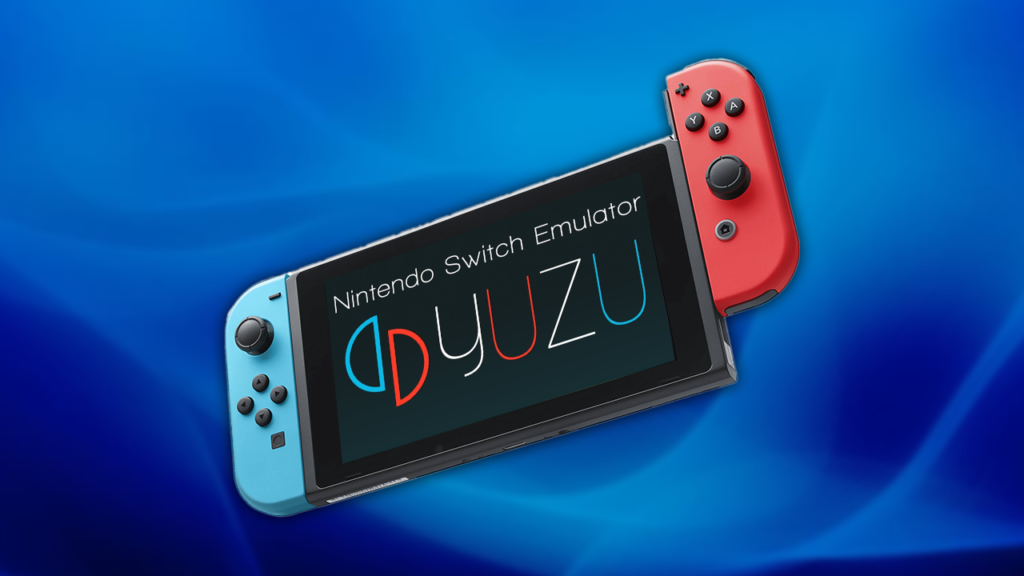
Why Yuzu Is Not Officially Supported on macOS?
Yuzu has not been officially released for macOS due to technical differences between operating systems. Apple uses Metal as its graphics API, while Yuzu is built around Vulkan, which is not natively supported on macOS. Although tools like MoltenVK translate Vulkan to Metal, they introduce limitations that affect performance and compatibility.
Developers have made progress in creating builds for macOS, but these are not stable enough for casual players. The macOS version was mainly used for development and preservation purposes, not for general distribution.
How to Run Yuzu on macOS (Workarounds)
Since Yuzu is not officially supported on macOS, users rely on workarounds like Homebrew builds, MoltenVK, and experimental Vulkan setups to run the emulator. These methods can make Yuzu work on some Mac systems, but stability and performance may vary depending on hardware and macOS version.
Installing Dependencies Using Homebrew
To build Yuzu for macOS, developers need to install several dependencies first. The easiest way to do this is through Homebrew, a package manager for macOS that simplifies software installation. These dependencies include compilers, libraries, and tools necessary for the emulator to function correctly.
Use the following command in your terminal to install all required packages:
brew install autoconf automake boost@1.76 ccache ffmpeg fmt glslang hidapi libtool libusb lz4 ninja nlohmann-json openssl pkg-config qt@5 sdl2 speexdsp zlib zstd
Each library serves a specific purpose, such as compiling code, handling graphics, or enabling USB communication. Make sure Homebrew is properly installed and updated before running the command.
Building Yuzu for macOS
Once the dependencies are installed, the next step is to build Yuzu using CMake and Ninja. This process compiles the source code into an executable application. Developers usually prefer Ninja for its speed and efficiency when handling large codebases.
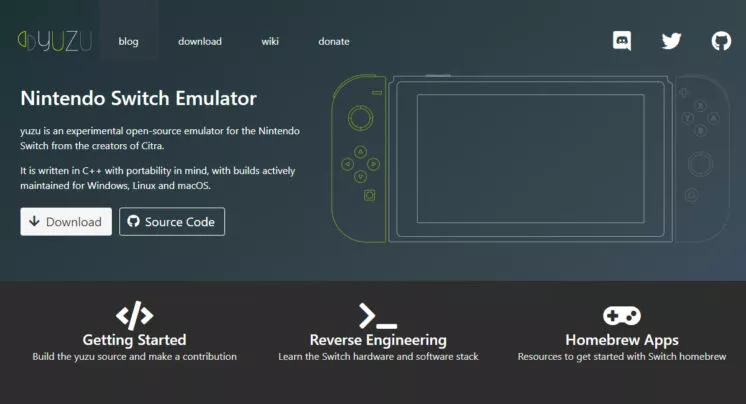
Follow these steps to build Yuzu:
- Create a new build directory and enter it:
mkdir build && cd build
2. Set the Qt5 directory path:
export Qt5_DIR=”/opt/homebrew/opt/qt@5/lib/cmake”
3. Run the CMake build command:
cmake .. -GNinja -DCMAKE_BUILD_TYPE=RelWithDebInfo -DYUZU_USE_BUNDLED_VCPKG=OFF -DYUZU_TESTS=OFF -DENABLE_WEB_SERVICE=OFF -DENABLE_LIBUSB=OFF
4. Start the build process:
ninja
This will create the Yuzu executable inside the build folder. Once completed, you can launch it using the following command:
bin/yuzu.app/Contents/MacOS/yuzu
How to run Yuzu with MoltenVK and Vulkan Loader?
Since Vulkan is not natively supported on macOS, users need to install MoltenVK and the Vulkan loader to enable rendering. MoltenVK acts as a translation layer that allows Vulkan-based applications to run using Apple’s Metal framework.
To install the required dependencies, use these commands:
brew install molten-vk vulkan-loader
After installation, set the Vulkan library path before running Yuzu:
export LIBVULKAN_PATH=/opt/homebrew/lib/libvulkan.dylib
bin/yuzu.app/Contents/MacOS/yuzu
This setup enables Yuzu to run using Vulkan through MoltenVK. However, graphical performance and stability may vary based on your macOS version and hardware.
Issues and their solutions
Developers working on Yuzu for macOS have reported several issues that prevent it from functioning like its Windows or Linux versions. The primary challenges include:
- Broken boost-context library in older vcpkg builds.
- Incomplete support for USB communication through libusb.
- Rendering bugs when using MoltenVK on specific games.
- Occasional crashes due to Apple’s Metal translation limits.
Some developers have listed the following tasks to improve Yuzu’s compatibility on macOS:
- Update vcpkg to a newer version that fixes boost context.
- Resolve libusb-related errors for better input handling.
These improvements are still under development and not guaranteed to make Yuzu fully stable on macOS.
Can You Use Yuzu on M1 and M2 Macs?
Yes, while the build process works on both Intel and Apple Silicon chips, the experience varies. M1 and M2 chips rely on ARM architecture, which differs from traditional x86 systems. This means certain dependencies may need additional adjustments or patches to compile successfully.
Performance on Apple Silicon can be impressive due to the strong GPU integration, but without official optimization, Yuzu may not run most games properly. Intel-based Macs may compile the build more smoothly but still face rendering and compatibility issues.
Performance Expectations
Yuzu performance on macOS varies widely based on hardware and setup. Intel-based Macs usually deliver low to moderate FPS with frequent stutters, while Apple Silicon (M1/M2) may achieve better frame rates using Vulkan workarounds. Expect occasional crashes, graphical glitches, and lower stability compared to Windows or Linux builds.
Alternative Options for macOS Users
If you want to play Nintendo Switch games on macOS without going through complex builds, there are alternative solutions. These tools and emulators may not be identical to Yuzu but provide similar functionality or easier setup.
- Ryujinx emulator has limited experimental macOS support and can run some games.
- OpenEmu supports classic Nintendo consoles and is optimized for macOS.
- Parallels Desktop or Boot Camp can run Windows, allowing you to use Yuzu in its official environment.
These options provide a safer and more stable experience for most users while waiting for an official Yuzu release on macOS.
System Requirements for Yuzu on macOS
Running Yuzu on macos requires specific hardware and software configurations. Although macOS builds are unofficial, the following requirements are generally recommended:
- macOS Monterey or later
- 8 GB RAM or higher
- Apple M1, M2, or Intel Core i5/i7 processor
- Vulkan-compatible layer through MoltenVK
- Updated Homebrew packages and libraries
Meeting these requirements helps ensure a smoother build process, though game performance may still vary.
Is It Worth Using Yuzu on macOS?
The future of Yuzu for macOS remains uncertain but promising. The open-source community continues to explore methods for improving compatibility, including better Metal support and optimized translation layers. As Apple expands Metal and Vulkan interoperability, Yuzu may eventually achieve stable performance on Mac systems.
Until then, macOS users can follow Yuzu’s development updates or join emulator forums where developers share progress on experimental builds and fixes.
Conclusion
Yuzu Emulator for macOS is not officially supported, but it can be built manually for testing and development. The process involves installing multiple dependencies, configuring CMake and Ninja, and setting up MoltenVK to enable Vulkan rendering. While this allows the emulator to launch on macOS, it is not suitable for regular gameplay due to compatibility issues and unstable performance.
Developers continue to refine Yuzu’s macOS build, and future improvements may bring better results for Apple users. For now, those who wish to experience Nintendo Switch emulation on macOS can explore alternatives like Ryujinx, OpenEmu, or Parallels Desktop. As open-source development evolves, the chances of Yuzu running smoothly on macOS in the near future remain strong.
Frequently Asked Questions
Q 1. Can I use the official installer for the Yuzu Emulator on macOS without building from source?
Many users wonder if there is a ready-to-use macOS installer. As of now there is no officially supported release for macOS, so users still need to build the emulator manually or rely on experimental/community builds.
Q 2. Will games that run on Yuzu under Windows or Linux also run on macOS once built?
Game compatibility is significantly lower on macOS builds because of missing features, translation layers (like MoltenVK), and driver issues. A game that works on Windows may crash or display glitches on macOS.
Q 3. Do I need a Windows virtual machine or Boot Camp to use Yuzu on an Apple Silicon Mac?
While the article explains how to build Yuzu natively on macOS, many macOS users use a Windows VM or Boot Camp to run Yuzu because the native build is experimental and lacks full support.
Q 4. Does using MoltenVK or Vulkan loader guarantee full graphics performance on a Mac?
Installing MoltenVK and the Vulkan loader enables the Vulkan-to-Metal translation, but it does not guarantee full performance. Many games still encounter rendering issues or sub-par frame rates on macOS due to the translation layer and missing optimisations.
Q 5. Is it legal to emulate Nintendo Switch games on macOS using Yuzu?
Emulation software like Yuzu itself can be legal, but using game files, firmware, and keys without owning the original hardware and games may violate copyright laws. Users should ensure they own the legitimate console and games and follow local legal guidelines.


